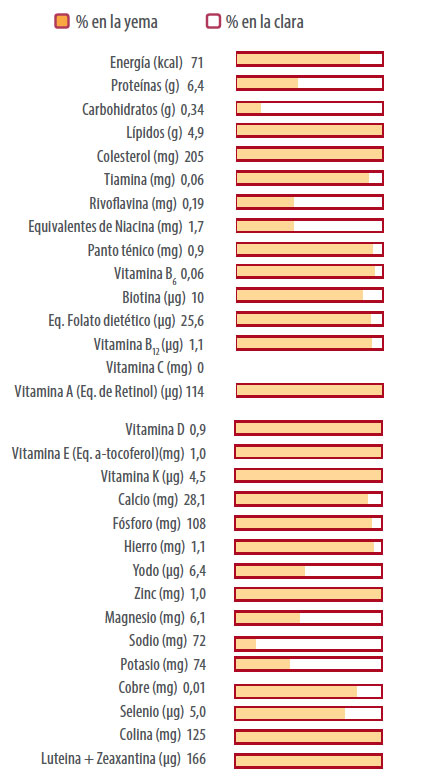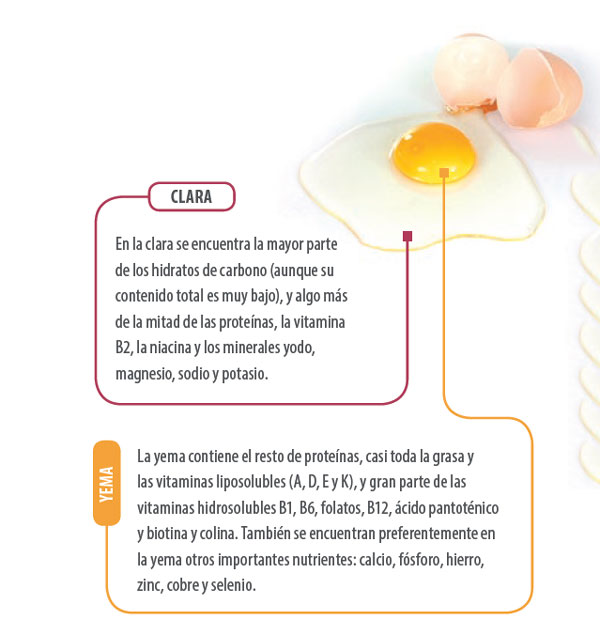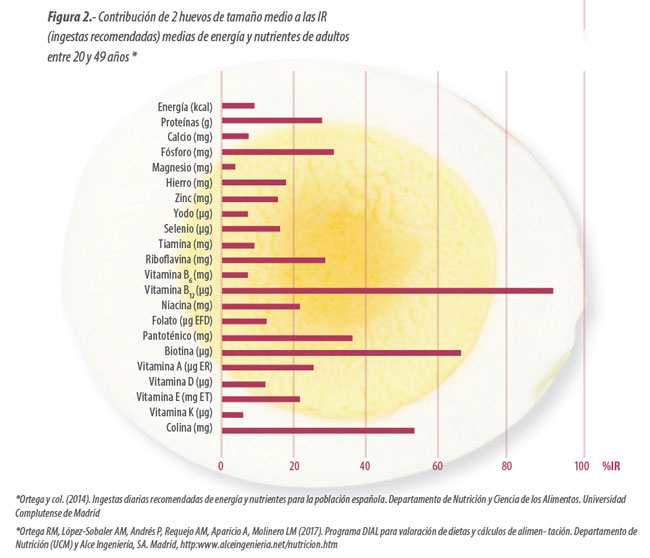Content available at: Español (Spanish)
Following a correct diet is necessary in maintaining health. In the case of athletes and people with high physical activity, an adequate diet is also essential to achieve maximum physical performance. Physically active people have higher energy expenditure, oxygen consumption and oxidative stress, and as a result of such physical effort, they suffer greater muscle loss. That is why their nutritional needs are different from those of sedentary people, and their diet must provide not only more energy but also a greater quantity and quality of other nutrients.
Eggs are considered as a super food thanks to their high content of essential nutrients, and bio-active substances. These are all easily absorbed and used by the body, and have positive effects on our health. Including eggs in the diet of anyone, and especially in that of those who are more physically active, provides clear nutritional and health benefits.
Nutritional value of the egg
Eggs are packed with nutritional value. Figure 1 shows the nutritional composition of a medium-sized egg, which is equivalent to about 50 edible grams, of which approximately 17 grams correspond to the yolk. Eggs contain significant amounts of protein, lipids, minerals, and almost all vitamins, except for vitamin C.

Figure 1.- Composition of a medium-sized egg and percentage of nutrients provided by the yolk and the white (*)
To better understand the importance of eggs in adult diets, the percentage of recommended intakes (RI) of nutrients for adults aged 20 to 49 years that are covered by two medium-sized eggs (about 100 g edible portion) has been represented in Figure 2. Eggs provide high amounts of many nutrients: more than 15% of the average recommended intakes of protein, iron, selenium, vitamin B2, niacin, vitamin A and E; and it is especially rich in phosphorus, vitamin B12, pantothenic acid, biotin and choline, which makes it possible to cover more than 30% of the RI of these nutrients.

In addition to providing high amounts of nutrients, it’s worth noting that they are in bio-available form, meaning their absorption and use by the body are very high.

Component of eggs of interest to active people
Athletes and physically active people need more energy and nutrients because they have a higher energy expenditure and also because of the muscular wear and tear that occurs due to the physical stress of exercise. Each athlete has particular nutritional needs, which depend on their age, sex, size and body composition, and also on the intensity of their physical activity. It is not the same when a sport is practiced recreationally, or as an amateur, professional or elite sport.
Eggs, due to their nutritional value and its content in other substances, is a highly recommended food for athletes and physically active people, always in the context of a varied and balanced diet. Due to their low caloric content, it is also of great interest in cases and disciplines in which caloric intake or body weight must be controlled.
PROTEINS
The egg is a food rich in protein and covers a high percentage of the recommended intakes of this macronutrient. In addition, egg proteins are of high quality, since it provides each and every one of the essential amino acids. For this reason, it has been considered the highest quality protein for years, and it was the standard with which that of other foods was compared. At present, the quality of a protein is evaluated taking into account its amino acid content and also its digestibility. Egg protein has the highest rating, since it does not contain any limiting amino acids and is very easy to digest. It’s also better valued than other proteins of animal origin, and far superior to vegetable proteins.
Physically active people and athletes need to take high-quality proteins as they are necessary to synthesize new body proteins, such as muscle proteins, which must be repaired when they get damaged after exertion. Also, some amino acids can be used for energy production in muscle.
Keep up to date with our newsletters
Receive the magazine for free in digital version
REGISTRATION
ACCESS
YOUR ACCOUNT
LOGIN
Lost your password?










